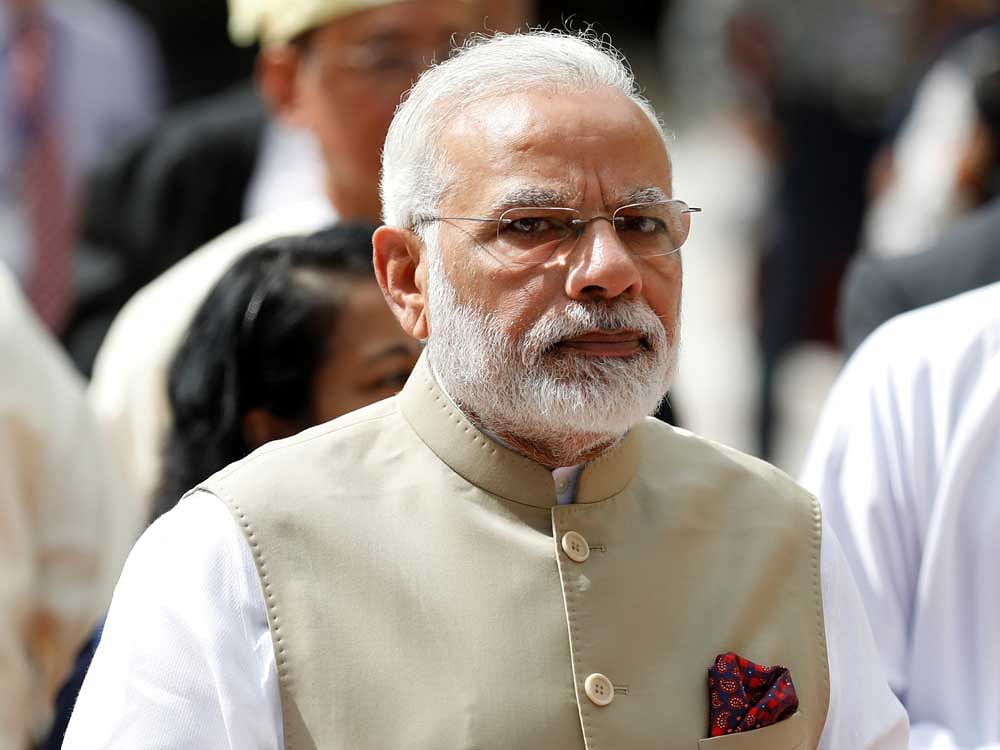
Prime Minister Narendra Modi’s statement to opposition leaders regarding the crisis in eastern Ladakh has confounded the already existing confusion. His declaration, without mentioning China, that “No one has forcibly entered into Indian territory, there is no intruder inside our border, nor has any Indian post been captured by anyone” is contradicted by commercially obtained satellite imagery featured in television news reports.
These clearly show the accelerated Chinese military build-up between the hill features Finger 4 and Finger 8 on the northern shore of the Pangong Lake, and in the Galwan Valley – areas considered well within the Indian side of the Line of Actual Control (LAC). Military-grade imagery from Indian satellites with sub-metre-resolution cameras and contact reports from the field indicating Chinese penetration in strength were available to the government from the beginning but apparently went unheeded.
The Prime Minister’s denial about the Chinese occupying Indian territory minimises political troubles for himself and suggests he is reconciled to India losing these areas. This may be for two reasons. One, the army’s assessment that evicting the PLA (People’s Liberation Army) from these areas would be an impossibly difficult task, could escalate to serious hostilities, and rupture his relationship with Xi Jinping that he has personally invested in.
And two, the profound blunder committed by the Ministry of External Affairs in 2008 by accepting Beijing’s condition that “clarification of the LAC” be no part of bilateral documents (as revealed in an article by Sun Lun, a Chinese-origin scholar at the Stimson Center in Washington, DC). It legitimates China’s expansionist activity in Ladakh and elsewhere on the indistinct LAC.
Sun Lun’s stunning revelation is a severe indictment of the MEA and its seemingly la-di-dah attitude to Chinese takeover of Indian territory which, by some authoritative accounts, amounts to 60 sq kms in the present crisis and some 1,300 sq kms in the new millennium. It fuels Beijing’s policy of creeping annexation predicated on the border dispute remaining unresolved and the LAC undefined. The oft-repeated Chinese promise to negotiate a final solution at the Special Representatives level that successive Indian governments have been fobbed off with, in the event, is only a diplomatic ruse to buy time for the PLA to realise China’s territorial claims by incrementally pushing the LAC India-wards, and presenting Delhi every now and then with new territorial faits accomplis.
The capture by China of Galwan is a strategic stranglehold because now PLA can interdict at will the traffic on the newly built Depsang-Daulat Beg Oldi/Karakorum Pass highway sustaining the Indian army presence on the Siachen Glacier. The army fouled up by not pre-emptively securing the valleys and the heights on the Shyok, Cheng-chenmo and Galwan rivers fronting on this highway when its alignment was firmed up over ten years ago. It has left India with no alternative than forcibly evicting the Chinese from the Galwan, whatever the cost, as the army did Pakistani troops in 1999 from the Kargil ridge because they imperilled the lifeline to Leh. However, Modi appears disinclined to risk it.
(Bharat Karnad is Emeritus Professor in National Security Studies at the Centre for Policy Research, New Delhi, author, most recently, of Staggering Forward: Narendra Modi and India’s Global Ambition)
Disclaimer: The views expressed above are the author’s own. They do not necessarily reflect the views of DH.